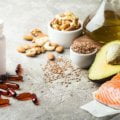This week has been Mental Health Awareness Week, and the theme for 2019 has targeted frame photograph and their effect on our intellectual fitness. Shocking facts published through the Mental Health Foundation revealed that in a survey of 4,505 adults and 1,118 teenagers, one in 5 adults felt shame, and over a third of teens (37 in line with cent) felt disillusioned about their frame picture.
They additionally document that “Higher frame dissatisfaction is associated with a poorer great of existence, psychological misery and the chance of unhealthy consuming behaviors and consuming problems.” Although those developments are surprising, they’re not anything new. Social media and sleek magazines feature ideal bodies and inconceivable sizes for maximum common people. We want to be kinder to ourselves and others and love the pores and skin we are in.
Stop dieting
We recognize that dissatisfaction with our body shape or length can cause disordered consumption, yo-yo dieting, and bingeing; however, the opposite is also real. We tend to make healthier alternatives when we feel better about ourselves. Nutrition is just one part of the jigsaw for precise intellectual health. If we can become more connected to the meals we devour and cost-nourishing meals for their potential effect on our mental, bodily, and emotional fitness, we are much more likely to make more healthy choices.
Let’s look at meals because of the sum of their energy or because they are obsessed with how much fat or sugar is inside our meals. We can begin to set up a bad mindset about nutrients so that if we consume something that is outside our ‘allowed’ foods or a food that we consider as ‘sinful,’ ‘awful,’ or ‘fattening,’ we feel responsible, out of control and then make bad selections, as we think we’ve got failed. This isn’t a wholesome way to live.
When I communicate with human beings about meals and nutrients, I need them to get excited about how meals could make them feel guilty about making the ‘wrong choice. Rather than considering food as ‘properly’ or ‘terrible’, ‘wholesome’ or unhealthy,’ we want to examine the larger picture. If most of our food is nourishing and full of vitamins, minerals, wholesome fats, protein, and fiber, then there’s room to revel in the occasional treat. Not as praise, however, as a part of a balanced, healthful weight loss plan.
Simple thoughts to assist
Keep a meal diary:
At the end of the week, look at the diary and write down three things you do properly. Maybe you ate five a day most days, chose high-fiber ingredients, or cooked all your meals from scratch. Sometimes, looking at what we eat every week lets us take a step back and can give us a higher perception of how nicely balanced our food regimen is, obsessed with every meal or meal that we eat.
Forget about the numbers:
Stop counting calories. Instead, look at what’s on your dinner plate. Is half of it full of veggies? Have you covered a palm-sized portion of a protein (eggs, meat, fish, pulses, and so forth)?
Is there a low-GI carbohydrate (brown rice, new or candy potato, wholemeal noodles, and many others)? This will assist you in getting an idea of what a balanced meal appears to be and start thinking in a slightly distinctive manner about how to consume well.
Get connected to the food for your plate:
When planning what to p.C. Into your lunchbox or put on your dinner plate, take a moment to recall how vital that meal is to nourish,h you, energize you and ex, and experience your body and mind. It is robust stuff.
Please ask for help if you need to:
Talk to your family and buddies, a colleague at work, or your GP. There is help to be had. Inspirewellbeing.Org and conscious-ni.Org are good locations for advice, too.












